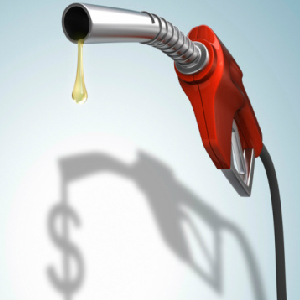
by Sam Rolley
As many Americans hit the road en route to the perfect spot to celebrate the Fourth of July, their patriotic feelings may give way to grumblings about the foreign policy and energy independence failures of the Nation’s leaders in recent decades.
According to AAA, gas prices throughout the U.S. for Fourth of July travel are at an average of about $3.68 per gallon, about 20 cents higher than this time last year.
Gas prices usually fall slightly preceding what has become the Nation’s busiest summer travel holiday. But this year the prices are on the rise as the result of the United States’ failures to create a stable Iraq in the oil-rich Mideast.
The U.S. imports only about 300,000 barrels of oil per day from Iraq. But as radical extremists make their way across the war-torn country and move into regions dominated by oil production, an already thin global oil supply is being stretched to its limits. High demand for petroleum from China and other rapidly developing nations combined with a standstill in production in oil-producing regions such as Libya, Sudan and Nigeria are also factors that make Iraq’s ability to produce petroleum paramount.
Moreover, American petroleum consumers are further forced to pay higher prices at the pump because of U.S. sanctions barring the purchase of petroleum from Iran and Syria.
Currently, extremist Sunni factions in Iraq working under the banner of the Islamic State of Iraq and Syria (ISIS) haven’t made major inroads into the country’s Shiite-dominated southern regions, where the glut of Iraq’s oil industry is situated. But ISIS advances in the northern part of the country have shut oil fields and forced companies to evacuate workers from areas that were once considered primed for growth on the heels of the United States’ long-standing occupation.
While gas prices in the U.S. are nearing highs that Americans haven’t seen since about 2008, some watchers have noted that the situation could be much worse if not for the shale boom that has led to increased U.S. oil production.
“The net amount of crude the U.S. has added to global markets has resulted in one of the longest periods of oil price stability in years, and has helped push the broader trend down,” Business Insider’s Rob Wile noted last month.
Republican lawmakers have made moves in recent weeks to seize on the energy stability produced by increased domestic oil and natural gas production by passing legislation to expand drilling offshore and on publicly owned lands.
Representative Doc Hastings (R-Wash.), who sponsored the bill, said the legislation was an effort to force the Barack Obama Administration to remove “roadblocks” to U.S. energy production.
“In order for America to prosper, we need access to reliable and affordable energy,” Hastings, chairman of the House Natural Resources Committee, said in a statement. “The best way to create jobs and help address rising prices is to develop the American energy resources we have right here at home.”
Other lawmakers are focused on combating energy price spikes, especially those stemming from the current Iraq crisis, by compelling the oil market regulators at the Commodity Futures Trading Commission to tamp down on Wall Street speculation of commodity prices.
“I am getting tired of big oil companies and Wall Street speculators using Iraq as an excuse to pump up oil and gas prices,” Senator Bernie Sanders (I-Vt.) said last week.
No comments:
Post a Comment